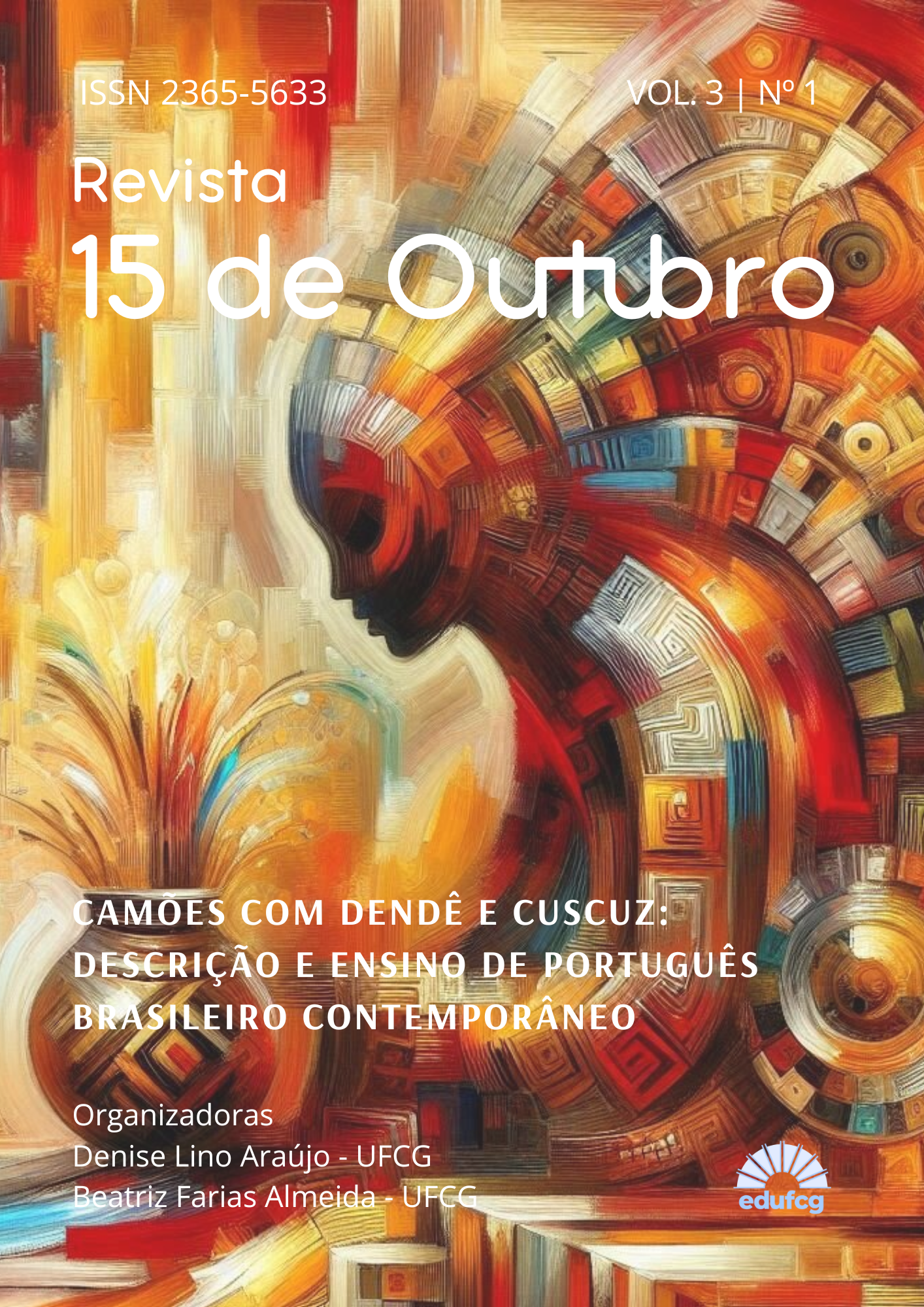APAGAMENTO DA CONSOANTE PÓS-VOCÁLICA /R/ EM VERBOS NO INFINITIVO
DOI:
https://doi.org/10.5281/zenodo.14057783Keywords:
Linguistic Variation, Phonetics-Phonology, Traditional Grammar, Teaching.Abstract
Studies on linguistic variation in the process of learning and understanding grammatical rules are recurrent in linguistic research but are very rare in the classroom. This is despite the high deficits in students' reading and writing skills, which result from distortions between sound and letter due to differences between the standard norm and the speech community variation of the students. Our goal is to analyze the deletion of the post-vocalic consonant /r/ in the coda position in the speech of Pernambuco natives, knowing that these variations result from phonological processes explained through the rules of the standard variant that characterize them, and through phonetic studies. The corpus used consists of interviews conducted by reporter "Jota Junior" in Pernambuco and broadcast on the TV Guararapes Oficial channel. The data analysis was guided by the studies of Orlandi (2005), Leite and Callou (2002), Lemle (1995), Labov (2008 [1972]), Gnerre (1985), Couto (1991), among others. The analysis of the interviews indicated a contrast between the established grammatical rule and the observed linguistic practice in Pernambuco's speech. The grammatical rule prescribes the pronunciation of the suffix "-r" for verbs to be classified as infinitives, while the linguistic reality shows a phonetic variation in which this suffix can be omitted in everyday speech without compromising understanding among speakers. As a conclusion of the analysis and a contribution to language teachers and researchers, an activity proposal was suggested. This proposal exemplifies a teaching practice focused on the student's linguistic variation that results in the deletion of the /r/ in the syllable coda and reflects this sound-letter relationship in writing.
Downloads
References
BYBEE, J. Phonology and language use. Cambridge: Cambridge University Press, 2001.
CAGLIARI, L. C. Análise Fonológica. Campinas: Mercado de Letras, 2002.
CALLOU, D.; MORAES, J.; LEITE, Y. Variação e diferenciação dialetal: a pronúncia do /r/ no português do Brasil. In: KOCH, Ingedore (Org.). Gramática do português falado. Campinas: UNICAMP, 1996. v. 6, p. 465-493.
CASTRO, Yeda Pessoa. Camões com dendê: o português do Brasil e os falares afro-brasileiros. Rio de Janeiro: Topbooks, 2022.
COUTO, Hildo Honório do. O que é português brasileiro. 6ª ed. Editora Brasiliense. 1991.
CHINI, Alexandre. Gramática normativa da língua portuguesa: um guia completo do idioma / Alexandre Chini, Marcelo Moraes Caetano. – Brasília: Conselho Federal, 2020.
GNERRE, M. Linguagem, escrita e poder. São Paulo: Martins Fontes, 1985.
LABOV, W. Padrões sociolinguísticos. São Paulo: Parábola Editorial, [1972], 2008.
LEITE, Yonne; CALLOU, Dinah. Como falam os brasileiros. Rio de Janeiro: Jorge Zahar Editor, Série Descobrindo o Brasil, 2002.
MONARETTO. V. N. de. O. O apagamento da vibrante posvocálica nas capitais do sul do Brasil. Letras de Hoje, v.35, n.1, p.275-284, 2000.
MONGUILHOTT, I. O. S. A vibrante em final de palavra em Santa Catarina. In: Encontro do Círculo de Estudos Linguísticos do Sul, Anais do II CELSUL. Florianópolis, 1997.
ORLANDI, E. P. A língua Brasileira. In: Brasil: país multilíngue. Cienc. Cult. vol.57 no.2 São Paulo Apr./June 2005.
TARALLO, F. A pesquisa sociolinguística. 2. ed. São Paulo: Ática, 1996.
Downloads
Published
How to Cite
Issue
Section
License
Copyright (c) 2024 Revista 15 de outubro

This work is licensed under a Creative Commons Attribution-NonCommercial-NoDerivatives 4.0 International License.

